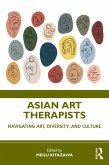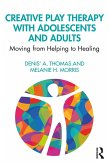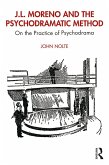Dieser Download kann aus rechtlichen Gründen nur mit Rechnungsadresse in A, B, BG, CY, CZ, D, DK, EW, E, FIN, F, GR, HR, H, IRL, I, LT, L, LR, M, NL, PL, P, R, S, SLO, SK ausgeliefert werden.
"Hadley and Yancy's pioneering volume illuminates the value of rap music and Hip-Hop culture in psychotherapy, in group settings with at-risk youth, in juvenile detention, with cancer patients, in pediatric medical settings, and in grief therapy for those experiencing loss, and provides protocol for therapists who are unfamiliar with the genre." - James G. Spady, Author, Tha Global Cipha and Marcus Garvey, Jazz, Reggae, Hip Hop and The African Diaspora
"[...]this book explores how the performance of Hip-Hop aesthetics and rap lyrics has potential as a culturally sensitive approach to therapy and critical commentary. [...]the authors demonstrate how young people who find themselves silenced and marginalized can use rap and Hip-Hop culture in ways that enable them to speak beyond internal and external barriers." - Brynjulf Stige, Professor of Music Therapy, The University of Bergen and GAMUT, Uni Health, Uni Research, Norway
"[The authors] have put together an engrossing collection of essays regarding rap and hip-hop music as therapeutic tools for professionals in music therapy, psychology, social work, and public health in general. [This book] is a pioneering resource for those interested in popular-music studies as well as for therapy professionals. The book is not a how-to manual, but it is filled with inspirational and innovative ideas about how to utilize rap/hip-hop music to good effect in a therapeutic setting. Equally helpful for musicians interested in learning more about music therapy and for therapists looking for new ideas in their own practices." -- A. C. Shahriari, Kent State University
"Susan Hadley and george Yancy have edited an interesting and compelling book that looks at the role and success of rap and hip-hop music in a therapeutic milieu. The volume would be interesting to music therapists and other individuals who are seeking creative ways of working with adolescents, especially those adolescents who are involved with the rap/hip-hop genre. The strength of the book is in the specific examples explaining how to do this type of therapy as well as the culturally diverse approaches that various authors report. Therapeutic Uses of Rap and Hip Hop makes a compelling and informative case for helping individuals in an strength-based, fluid modality that is fun and engaging." - Carol Drucker, PsycCRITIQUES









